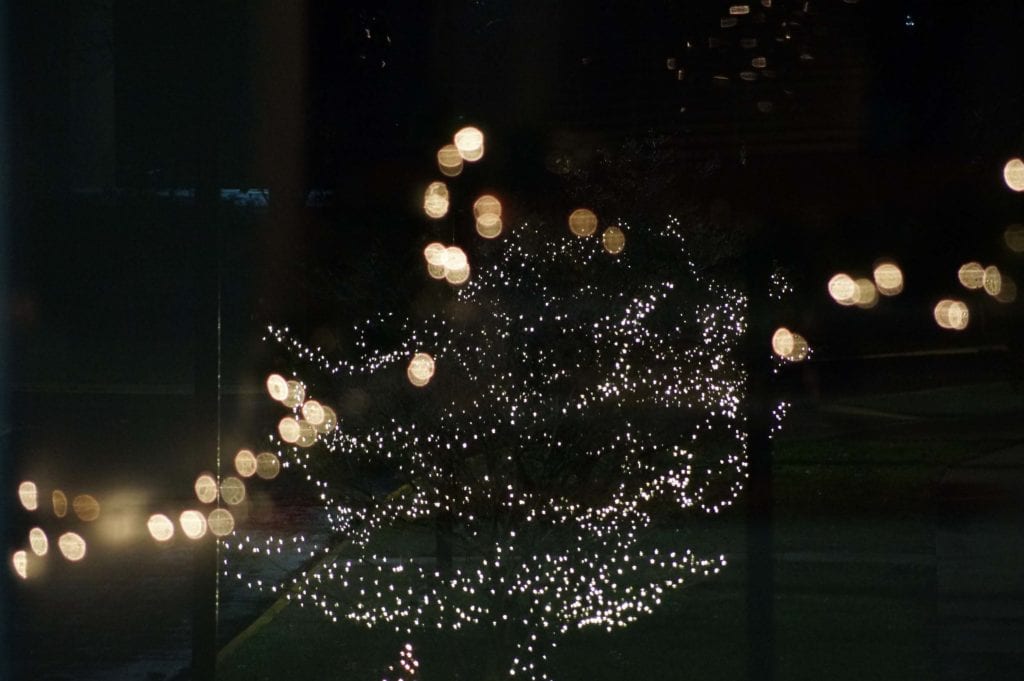Once Thanksgiving rolls around, there is hardly a resident of the United States who can escape the tidal wave of excess known as “The Holiday Season.” It carries us forward on a momentum of joviality, food, drink, gift-giving, and good will. Not a bad thing in itself, if it doesn’t obscure the foundational event that gives it its meaning.
"Liturgical Excess"
In fact, it is not just the retail world that spills its excess all around us. Liturgically, too, within the Christian tradition, there is plenty of excess—an excess of ritual and tradition, richly layered with meanings that may escape us if we aren’t paying attention. “The Holiday Season” hides within it two distinct liturgical seasons: Advent—literally “Coming,” and Christmas—a celebration of the Incarnation.
Each of the season plays havoc with our sense of time. During Advent we await the coming of the Savior who has already come. At Christmas, we celebrate the Word of God made Flesh—a God who is still waiting to be born among us. So, each is a window on the human continuum of longing and fulfillment, the already-accomplished but not-yet completed. What we await has arrived; what was accomplished by God through the consent of Mary of Nazareth is still seeded in each one of us and in all creation, waiting to be born anew.
Winter Pascha
And, if that were not enough, a turn toward the East reveals the Paschal connection which, though present, is more subtly observed with the Latin (Roman Catholic) Rite. In many of the churches of the East, the Feast of the Incarnation is referred to as “Winter Pascha” or Passover—the Jewish feast that is at the heart of the Triduum, a three-day Christina liturgical season that precedes the 50-day Easter Season. In fact, two Russian Orthodox hymns, one for Christmas and the other for Good Friday, follow a parallel pattern:
Christmas: The One who holds all creation in the hollow of a hand/ is born today of the Virgin. The One who hung the earth upon the wasters/ is hung today upon the Cross.
Easter: The One whose essence none can touch/ is wrapped in swaddling clothes as a mortal. The One who rules the angels/ is crowned today with thorns.
Especially in the Eastern Church then, this Advent—this Coming—is clearly linked to the death of Jesus on the cross at Passover—a Winter Pascha that points to the Spring Pascha that we call Easter.
What we really celebrate liturgically—what is at the root of “The Holiday Season” whether it is acknowledged or not—is much deeper and more demanding than the secular feast can express. Advent is not about birthday party preparation and Christmas is not a commemoration of an historical event. Our Advent waiting is a time to contemplate and long for the urgent, imminent, saving Coming, not a one-time occurrence but an ongoing, salvific reality.
T.S. Eliot got it just right in his poem, The Cultivation of Christmas Trees:
“Because the beginning shall remind us of the end and the first coming of the second coming.”
Never-ending celebration
Seen in this light, our Advent and Christmas observances become part of a never-ending season of the celebration of God’s saving work through the Incarnation-Resurrection of Jesus and the already-not-yet Advent-Coming of the power of this reality in our lives of every day. That’s worth celebrating, in every way possible, in our liturgical and social lives during “The Holiday Season” and beyond.
This was first published in Just Words, Fall, 2007. Background for this article came from “The Winter Pascha,” by Nathan Mitchell in Worship, vol 7, no. 6, November 1993.
To support our ability to provide you with spiritual inspiration like this, please consider making a small online donation to the Dominican Sisters today. Thank you!


